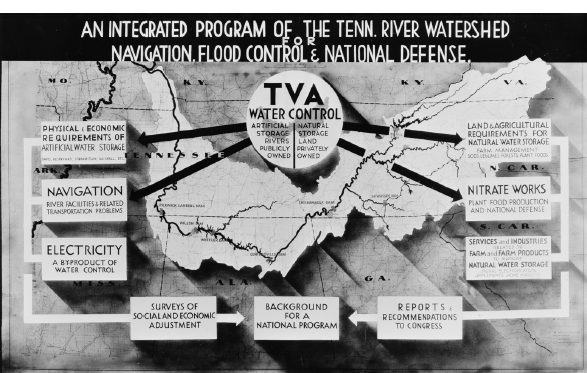We can't find the internet
Attempting to reconnect
Something went wrong!
Hang in there while we get back on track

Technocratic Governance and the EU: A Deep Dive
The Rise of Technocracy in the EU
The question of technocratic governance within the European Union is complex, touching upon the balance between expert rule and democratic principles. The EU's economic governance, particularly in the wake of recent crises, has highlighted tensions between technocratic approaches and the functioning of representative democracies.[1] This analysis will explore the rise of technocracy in the EU, its implications, and the ongoing debates surrounding it.
Technocracy, in the context of the EU, often involves decision-makers relying on experts and data-based evidence rather than solely on elected representatives or political affiliations.[2] This approach has become increasingly prevalent in economic management within advanced democracies, including the EU member states.[3] The introduction of fiscal rules and independent oversight bodies aimed to reassure electorates and financial markets, ostensibly removing fiscal policy from the realm of "fractious parliamentary politics" and placing it in the domain of technical administration.[3]
The Role of Independent Fiscal Institutions (IFIs)
However, this "depoliticization" has not been without its critics. The reality of fiscal rules is often more political and social than conventional accounts admit.[3] Governments frequently manipulate rules for partisan purposes, reflecting specific economic ideas and concerns.[3] This is evident in the creation, revision, and transgression of these rules, which are embedded in various forms of politics.[3]
Independent fiscal institutions (IFIs), such as the Office for Budget Responsibility (OBR) in the UK, have played a significant role in this technocratic landscape.[3] These bodies are designed to provide expert oversight and input into rules-based economic policy.[2] The OBR, for example, aims to increase transparency and assess the likelihood of fiscal targets being met.[3]
The Politics of Economic Method and Numbers
However, the OBR, like other IFIs, is not immune to political influence. Its creation and operation are often intertwined with partisan fiscal debates.[3] Furthermore, the OBR's work involves grappling with complex and often non-observable economic concepts, such as the output gap, which are integral to medium-term economic forecasting.[3] The choices made in modeling techniques and founding assumptions within these institutions reflect different ideological pre-suppositions about the economy.[2]
The technocratic veneer of institutions like the OBR often obscures the politics of economic policy.[2] A "politics of economic method" lens reveals how economists within these institutions make choices about modeling techniques and founding assumptions, engaging with contrasting views about the economy.[2] These choices can have significant policy ramifications.[2]
Challenges to Democratic Legitimacy
Moreover, a "politics of numbers" is also at play, where politicians manipulate economic statistics to present their economic record favorably.[3] This "scorecard artistry" can undermine the effectiveness of fiscal rules and the credibility of technocratic governance.[3]
The rise of technocracy in the EU has raised concerns about democratic legitimacy. Critics suggest that a "technocratic divide" exists between governing bodies employing technocratic principles and the general public.[4] This can lead to a situation where the opinions of technical experts are privileged, potentially marginalizing the views of the general public.[4]
The Need for Democratic Control
The EU's recent crises, including the COVID-19 pandemic, have exposed the shortcomings of its institutional design and the resistance of its economic governance to pluralism.[5] These crises have also highlighted tensions between EU economic governance and representative democracies, leading to anti-system politics and technopopulism in both Western and Eastern European societies.[5]
From a trade union perspective, the European Commission's reform agenda is problematic because EU fiscal policy is negotiated in a political arena beyond democratic control.[6] The German Trade Union Confederation (DGB) has demanded that the policy control mechanisms of EU economic governance be scrutinized and that the upcoming reform be accompanied by extensive democratization.[6]
The DGB is demanding, among other things, that: first, the draft law which the Commission is expected to bring forward in the first semester of 2023 should be adopted within the framework of an ordinary legislative procedure with the participation of the European Parliament. Second, the future legal text should contain minimum standards for parliamentary involvement in formulating the Four-Year Plans. Effective involvement of the social partners and other civil society organizations should also be ensured. Third, the role of the European Parliament in the European Semester for coordinating economic policy should be upgraded. European Parliament involvement should ensure that the Commission’s reform recommendations do not conflict with fundamental EU policy goals, such as the Green Deal or the European Pillar of Social Rights. Fourth, changes in Four-Year Plans should be made easier in the event of a change of government or a shift in macroeconomic conditions. Increases in state spending must also be feasible if offset by appropriate tax measures, without having to roll out the whole process once again. Finally, the details of debt sustainability analyses should be established in a transparent and democratic way.[6]
The DGB's demands highlight the need for stronger democratic controls to ensure that technocratic mistakes are more closely scrutinized and criticized in the public arena.[6]
In conclusion, the rise of technocratic governance in the EU is a complex phenomenon with significant implications for democratic legitimacy. While technocratic approaches can offer expertise and efficiency, they also raise concerns about accountability, transparency, and the potential for marginalizing the voices of the general public. The ongoing debates surrounding EU economic governance highlight the need for a balance between expert input and democratic control to ensure that the EU's policies are both effective and legitimate.
Authoritative Sources
- The rise of technocratic politics in the EU: the legacies of neoliberalism. [Comp Eur Polit (2025)]↩
- The politics of economic method and technocratic economic governance. [economicsociology.org]↩
- Analysing UK macroeconomic policy rules and their operation unearths numerous dimensions of the politics of technocratic fiscal policy-making. [blogs.lse.ac.uk]↩
- Technocracy. [Wikipedia]↩
- The rise of technocratic politics in the EU: the legacies of neoliberalism. [Comp Eur Polit (2025)]↩
- Not a matter for technocrats. [ips-journal.eu]↩

Sign up for free to save this answer and access it later
Sign up →